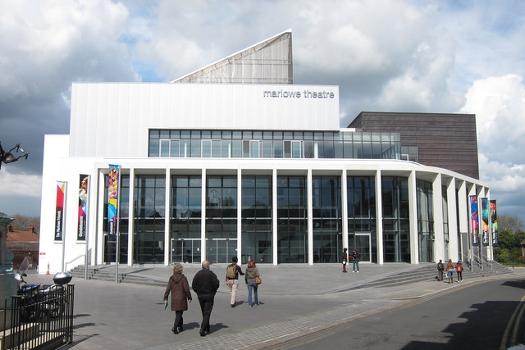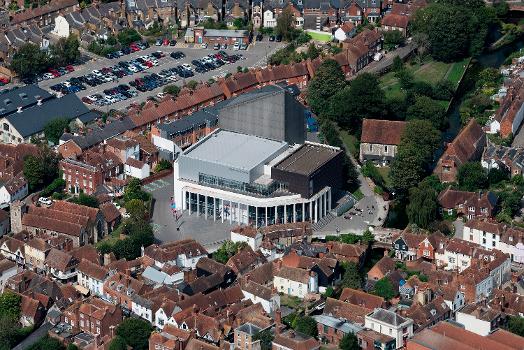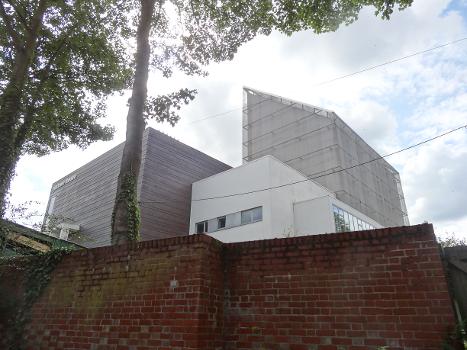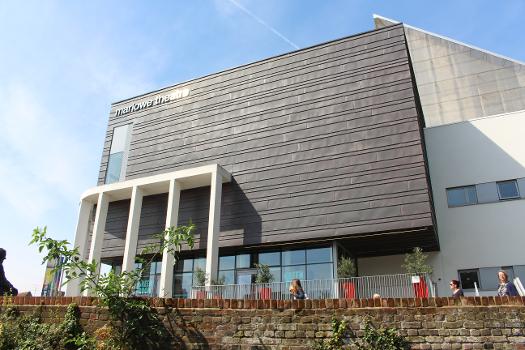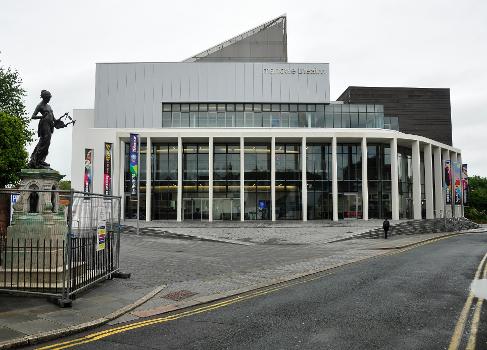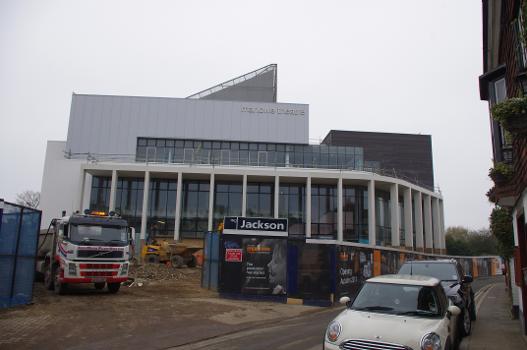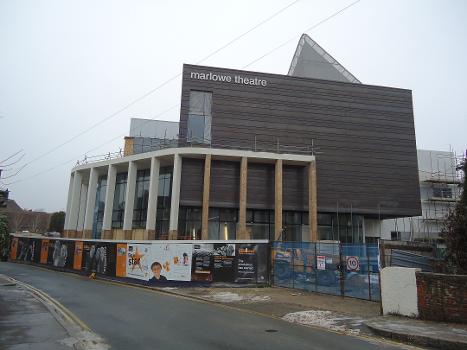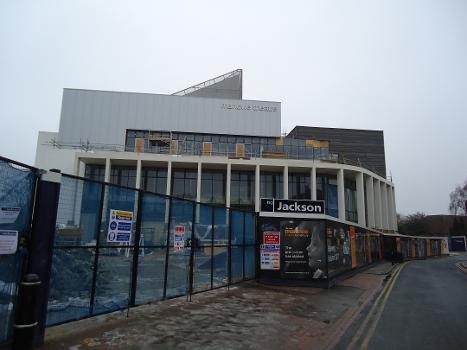General Information
Project Type
| Function / usage: |
Theater building |
|---|---|
| Material: |
Steel structure |
Location
| Location: |
Canterbury, Kent, South East England, England, United Kingdom |
|---|---|
| Address: | The Friars |
| Replaces: |
Marlowe Theatre (1933)
|
| Coordinates: | 51° 16' 51.72" N 1° 4' 42.96" E |
Technical Information
Dimensions
| gross floor area | 4 850 m² | |
| Main Hall | seats | 1 200 |
| small hall | seats | 150 |
Cost
| cost of construction | Pound sterling 25 600 000 |
Excerpt from Wikipedia
The Marlowe Theatre is a major 1,200-seat theatre in Canterbury, England.
It was briefly closed in March 2009 for redevelopment, reopening in a brand new building on 4 October 2011.
Name
The theatre was named after the playwright Christopher Marlowe, who was born and attended school in the city. In front of the present theatre is a 19th-century statue, The Muse of Poetry (Marlowe is known as the Muses' darling) surrounded by small effigies of characters from Marlowe's plays.
History
First building
The Marlowe Theatre previously occupied another site on St Margaret's Street, Canterbury which was demolished in 1982.
Second building
The second building in The Friars was built in 1933 as the Friars Cinema, where on 11 May 1944 the film A Canterbury Tale received its world premiere. It reopened as the second Marlowe Theatre in July 1984.
25 years later the converted cinema building had reached the end of its useful life, and the Marlowe closed for redevelopment on 22 March 2009.
Redevelopment and the Third Building
Canterbury City Council was advised that an entirely new theatre would cost more than redeveloping The Marlowe on its existing site (there being no suitable alternative site available), and therefore decided in 2005 to give the go-ahead to a multimillion-pound redevelopment of the theatre, with the working title of the New Marlowe Theatre Project. In March 2007 Keith Williams was announced as the chosen architect for the project.
The estimated cost was £25.6 million at 2008 prices. The old theatre building was demolished, and the new building containing two new auditoria. The project provided additional parking spaces for people with disabilities and a new, landscaped riverside walk connects the Marlowe directly to the banks of the River Stour. Construction by main contractors ISG Jackson began in 2009 and the 3rd Marlowe Theatre building was formally opened to great celebration by the Earl of Wessex on 4 October 2011.
Text imported from Wikipedia article "Marlowe Theatre" and modified on April 27, 2022 according to the CC-BY-SA 4.0 International license.
Participants
Relevant Web Sites
- About this
data sheet - Structure-ID
20082726 - Published on:
10/04/2022 - Last updated on:
02/05/2022

